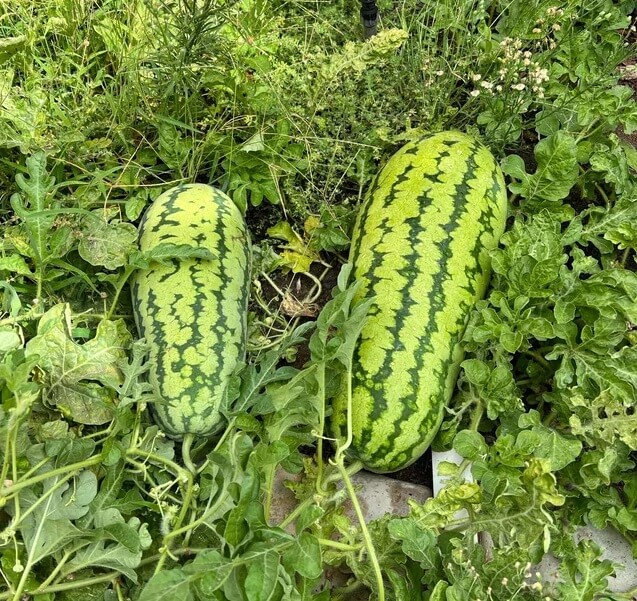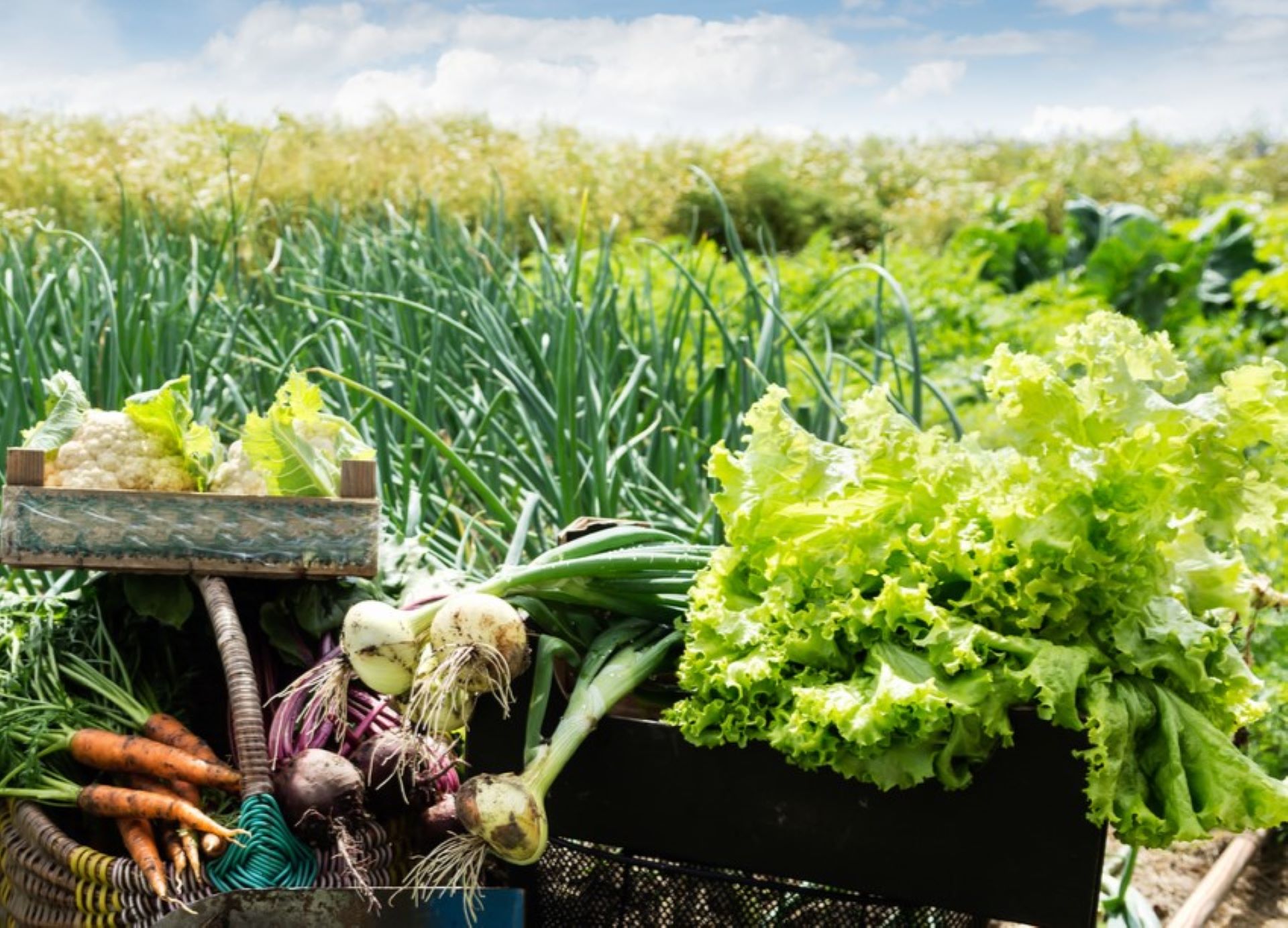Oddly shaped produce may not be aesthetically pleasing, but unless it's showing signs of disease or rotting, it's still perfectly edible and delicious.
One Redditor took to the thread r/gardening to share a photo of their oddly shaped watermelons — which grew in an oblong shape as opposed to the round ones you'll find in the grocery store. They described them as being heavier than expected, too. "Is this normal?" they asked.
The poster explained in the comments that they had been confused by the plant's growth trajectory, mentioning that it seemed to be struggling, but then suddenly exploded with these two oddly-shaped watermelons.
"We thought it died after the first 2 weeks," the poster said.

Turns out, the plant just needed some more time to grow. And even if these don't look like the round watermelons in the grocery store, they're still just as tasty.
The odd shape has to do with the variety of watermelon. Spherical ones are usually sold commercially because they're more aesthetically pleasing and sweeter, whereas the oblong shape tends to be more watery. Seedless watermelons are also round and chemically altered to limit the production of seeds, while other watermelons have yellow centers or are shaped like hearts.
Regardless, they all make a healthy and delicious summer treat.
Growing your own fruits and veggies may land you with some different varieties, but they'll be unmatched in freshness, and you'll gain a variety of health benefits. Studies have shown that those who garden have an average intake of 1.4 more grams of daily fiber — a carbohydrate important to digestion — than those who don't. Gardening is also known to increase exercise and improve mental health.
The produce we buy at the grocery store travels an average of 1,500 miles to get to us, and the vehicles used in transportation produce planet-warming gases. Gardening not only cuts down on this pollution, but it also increases plant life, which replenishes the soil and helps to clean the polluted air.
As it turns out, some commenters mentioned that these oblong watermelons used to be the norm. "You see, whipper snapper, back in the 1900's this was how all watermelons looked," one user wrote. "And they had seeds, too."
Another user also chimed in, saying, "In the 70's all I remember are long watermelons, not round, and we didn't have seedless yet."
Join our free newsletter for easy tips to save more, waste less, and help yourself while helping the planet.









